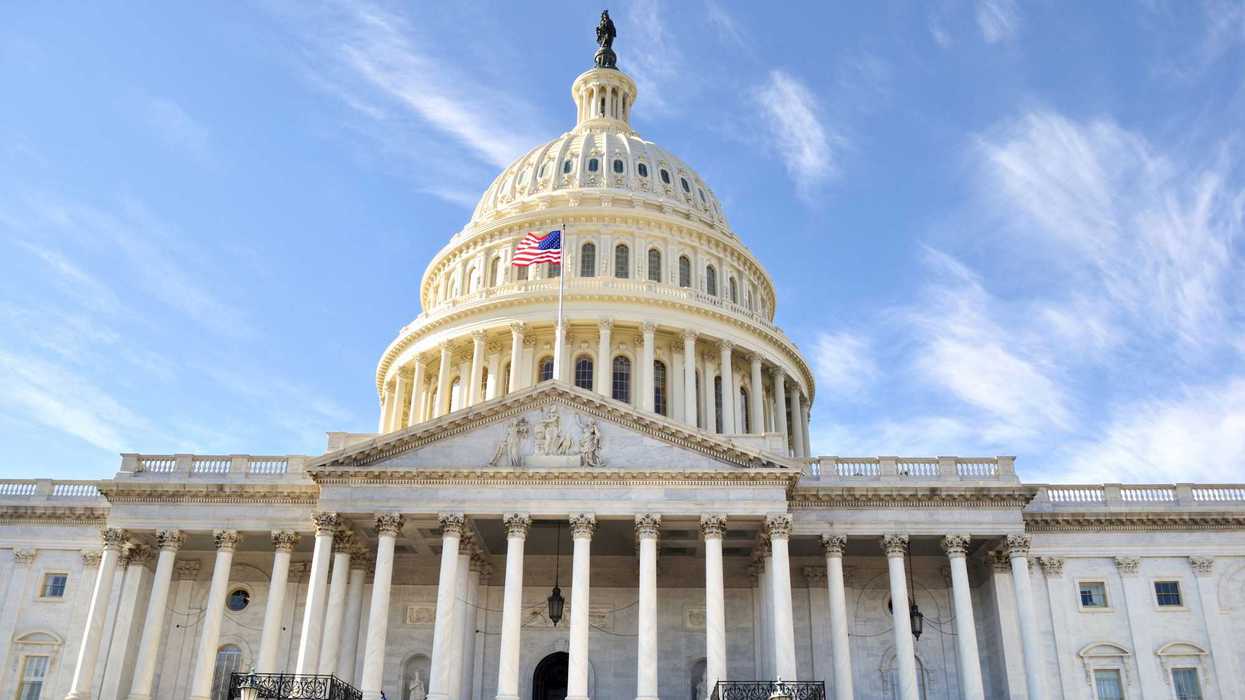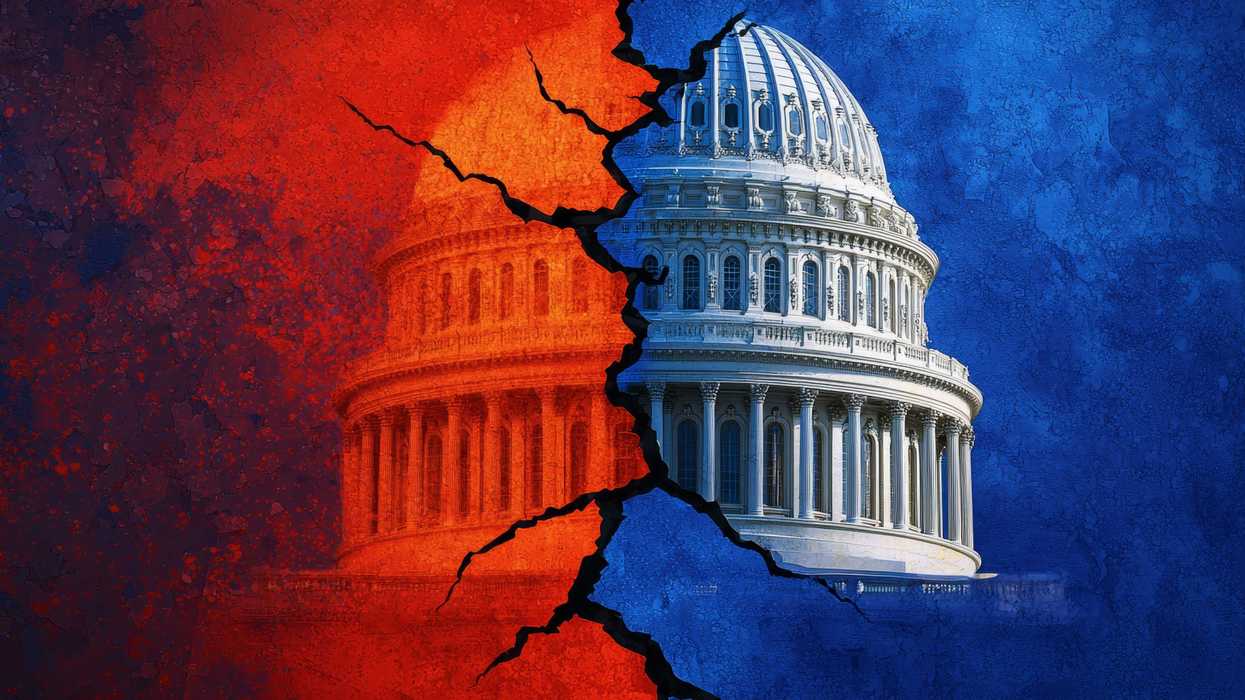Democracy in America is being driven into the shadows. Anyone in doubt need only pause to reflect on the events of June, when the military parade of the autocrat-in-chief in DC coincided with a manhunt for an assassin of lawmakers in Minnesota. Lawmakers who had stood up for reproductive freedom, as well as other progressive issues.
Let us say their names. Melissa Hortman. John Hoffman. They died by gun violence for what they believed in, and as a result of what they had worked for as elected officials. The gunman who robbed us of them also killed Hortman’s husband, Mark Hortman.
If news reports are accurate, the killer planned to target many more, including Planned Parenthood offices.
We must acknowledge that Melissa and John died in the line of duty. This, in a country where acting as an elected official serving the interests you pledged to your constituents, you would advocate for, puts a bounty on your head, especially if you are committed to reproductive rights.
As U.S. democracy is being eclipsed by lethal forces, we must look directly into the sun and acknowledge this truth: the future of feminism is now. Women and men, gay and straight, LGBTQ and trans, are in the streets talking at the top of their lungs about rights – to our own bodies, to the justice and human dignity which flow from those rights, and to the democratic processes which protect them.
“Hands Off!” signs – a staple phrase of abortion advocacy – abound, and have taken on new meanings. As in, hands off my body; hands off my health care; hands off, DOGE; hands off, ICE.
Reproductive freedom is a potent rallying cry: the nexus, even, around which many other cries for justice are assembling. And with it comes feminism: an equally powerful resource in the fight against the deadly march towards authoritarianism in the US.
It’s well known that feminists themselves have not been immune from racism, classism and heteronormative ways of thinking. As scholars have shown for decades, including myself, mainstream feminist organizations and advocates have tended to imagine gender equality through a white, middle-class liberal lens.
And historians have often excluded Black, Brown, and Indigenous women from their narratives, thereby contributing to the erasure of the forms of solidarity and equity those women and their comrades practiced in their communities and traditions.
Meanwhile, American history is rife with examples of women of color who stood up to violence and hatred. Of the many studies of civil rights worker Fannie Lou Hamer, Keisha Blain’s Until I am Free: Fannie Lou Hamer’s Enduring Message to America, stands out for its determination to make visible the sheer force of Hamer’s relentless refusal of police brutality and economic injustice under Jim Crow.
If Americans want to draw knowledge as well as strength from the futures to be found in the feminist past, they need to look beyond a strictly US history perspective as well. In her study, Scales of Resistance, for example, Maylei Blackwell shows how Indigenous women in Mexico grounded their vision in a combination of bodily autonomy and community practice.
Have a look too at Emma Mashinini’s autobiography, Strikes Have Followed Me All My Life, a harrowing account of her trade unionism under threat of death from the South African government – all in service of a better future for working people.
And with a title evoking the perpetual pull of the horizon, there’s Sara Rahnama’s The Future is Feminist. Her research documents the role of Muslim reform movements in keeping “the woman question” at the heart of public policy debate about the very future of Algeria in the brutalizing context of French colonialism – the backstory, in other words, to Algerian women’s contributions to the struggle for independence.
The takeaway here is not only the power of remembering these warriors and studying their example to gird ourselves for the struggle we face now. It is the urgency of understanding that despite the terror of the times they lived in – and of course, because of it – feminists and their allies have always had their eye trained on the horizon.
They thought and acted beyond the present because they were resolutely against the present.
When war is at your doorstep, the present is well-nigh impossible to escape. In our time, with the surround sound of social media, the present pours into our minds and psyches with a relentlessness and a velocity it’s hard to ignore or stop.
To truly move against the present, we need to pause and reorient ourselves toward the future, as many feminists have done in the past.
We need their individual example, yes. And we need the histories of the future-thinking they worked with and for.
When Fannie Lou Hamer famously said, “I’m sick and tired of being sick and tired,” she diagnosed the high price she paid as a Black woman for the violence of racism and misogyny. She also declared her intolerance of the present and identified it as the threshold for Afrofuturist action.
It’s time for a feminist countermovement that rejects the anti-democratic insurgency of the present. That counterinsurgency must be rooted in a vision of a better world than the one those in power are trying to normalize today.
That future vision includes universal, gender-affirming healthcare; universal basic income; equal access to higher education; humane border policies; immigration justice; gun safety laws; electoral security and protections; and democratic agendas that prioritize the poor and disenfranchised.
And last but not least, reproductive freedom. For without guaranteed protections for the choices we make regarding our bodies, the future is the past. For everyone.
As history has shown, there is no single pathway to the future of feminism. But however we manifest it, the only way out of the shadows engulfing democracy now is to be resolutely against the present is. It’s what we owe to those who have paid with their lives for rejecting the order of things today.
My next rally sign? “Hand Off Feminist History. Hands off the Feminist Future.”
Antoinette Burton is a historian at the University of Illinois, Urbana-Champaign, and an alumna of the OpEd Project.


















 Mayor Ravi Bhalla. Photo courtesy of the City of Hoboken
Mayor Ravi Bhalla. Photo courtesy of the City of Hoboken Washington Street rain garden. Photo courtesy of the City of Hoboken
Washington Street rain garden. Photo courtesy of the City of Hoboken
